A delightful detour
Why we're glad we didn’t judge Guinea Bissau by its problems
GUINEA BISSAU
Before I start the Guinea Bissau ramble, here’s a quick recap on where we are and what the plan is. We’re travelling through parts of West and Central Africa over two dry seasons, with the aim of getting to Southern Africa (which starts with Angola) by early-ish 2026.
All being well we’re hoping to get to Ghana this May, where we’ll store Ivy for a few months over the worst of the rainy season and return to Europe for a large dose of family/friends/work/apartment/life admin stuff. We’ll then continue roughly by this route below. That scribbled line does cover the countries we’ve visited and plan to visit, but in no way represents a detailed route. I say ‘all being well’ because we never know what life will throw at us, and one certainly can’t be sure of the political or security situation anywhere these days. But this is the plan for now. 🤞🏼
So, on to Guinea Bissau. Know much about it? We certainly didn’t until we started looking into it. In fact, we weren’t clear until we began our research that there are three Guineas – Guinea Bissau, the Republic of Guinea (also known as Guinea-Conakry) and Equatorial Guinea. We weren’t sure we’d go there as it’s a detour off the more direct route south, but in the end we were drawn to this fascinating little nation.
If you just looked at the bald facts, you’d conclude that Guinea Bissau is an absolute basket case of a country that you might hesitate to visit. Since declaring its independence from Portugal in 1973, only one elected president has managed to complete a whole five-year term without being overthrown in a coup or assassinated. The lack of stability has left a vacuum that’s been partly filled by cocaine traffickers, corrupt officials and politicians using the country as a conduit for the drugs trade between Latin America and Europe, distorting development and adding to the instability. It’s one of the poorest nations on earth. Life expectancy is around 61 years old. And the infrastructure is really crap. All of the country’s electricity is provided from a Turkish power ship that’s moored offshore from the capital Bissau. And that doesn’t mean everyone has power – not by a long stretch.
A lot of this stuff is not unique to Guinea Bissau. But this was a good general reminder that it’s no good only looking at the bald facts when making travel decisions – if we did, we’d barely go anywhere. Because Guinea Bissau was a delight. A tiny country with big problems, not always straightforward, and with mostly awful roads, but a beautiful, welcoming delight.
As we entered from Senegal we immediately had the sense that the tropical feel had ramped up a notch. Low tin-roofed houses in neat compounds with palm and cashew trees for shade. People working in their yards or sitting on the porch. Something about the colours and the tempo put us in mind of places we’ve visited on the Caribbean coast of Latin America.
We completed a 5.5-hour 130km pothole slalom to the small town of Canchungo, which sits at the edge of a mangrove-lined estuary. It was a lovely drive down tree-lined roads and past little villages. We enjoyed the scenery when we had the chance to avert our gaze from the next potentially axle-cracking hole in the ‘road’. Everyone was waving and grinning and children were actually cheering as we went by. Maybe they were congratulating us for persevering? It was joyful (the children, not the road).
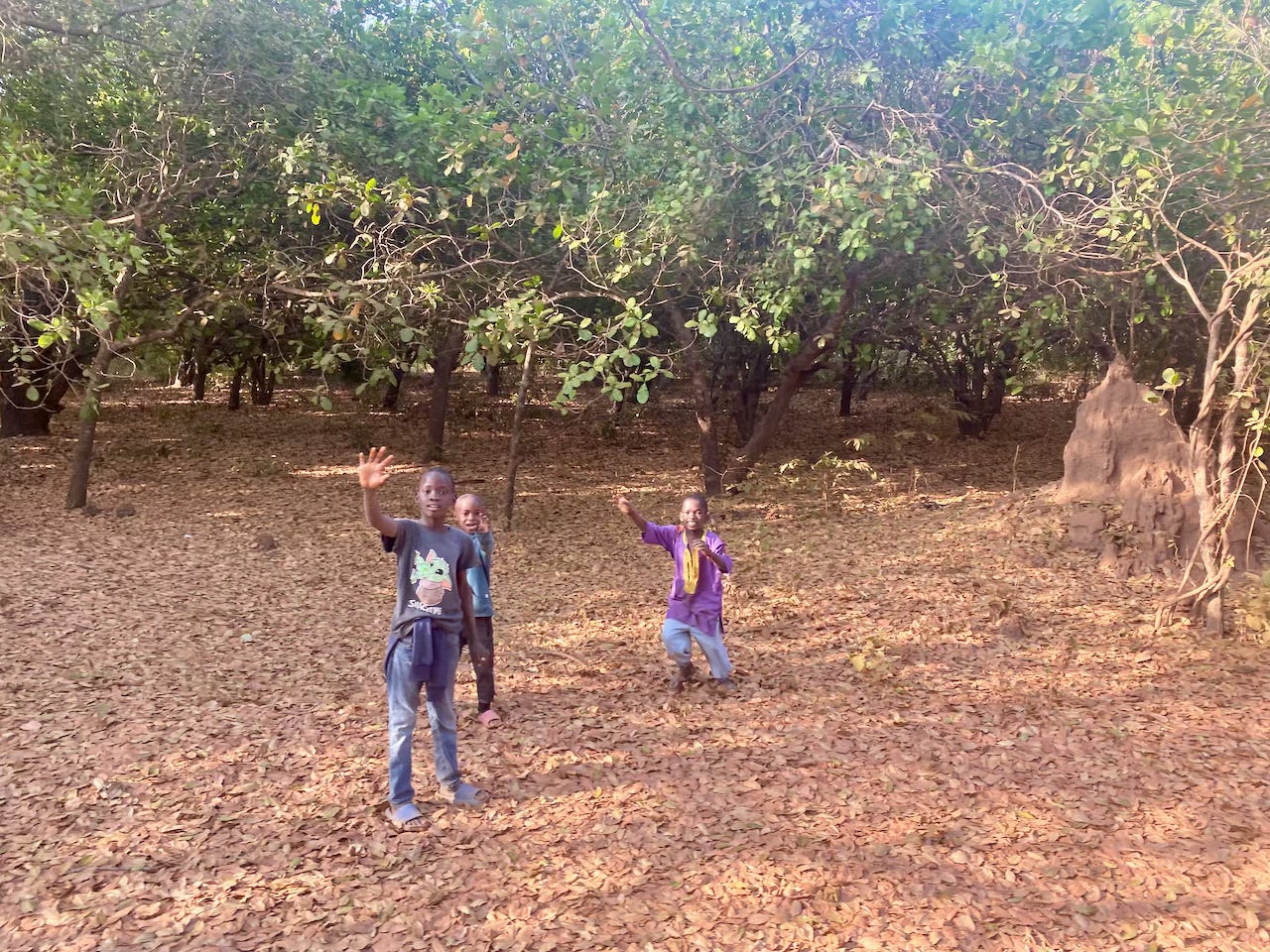
We had a few days to find our feet at a glorious and tranquil spot on the estuary – a guesthouse that allows camping.
As we walked around Canchungo it was notable how little hassle we got. It’s not to say we were constantly besieged in Senegal and The Gambia but not a day goes by there without at least a few people approaching, selling, asking for something and/or just drawing attention to us. We still stuck out like shiny beacons, but it was nice to have a feeling of relative anonymity.
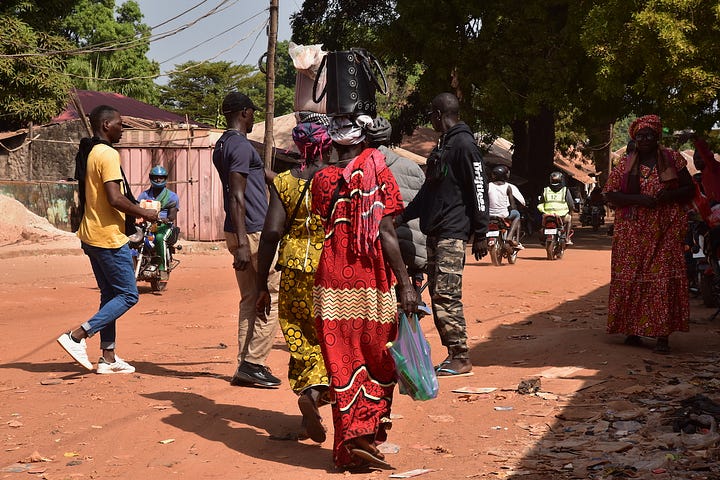
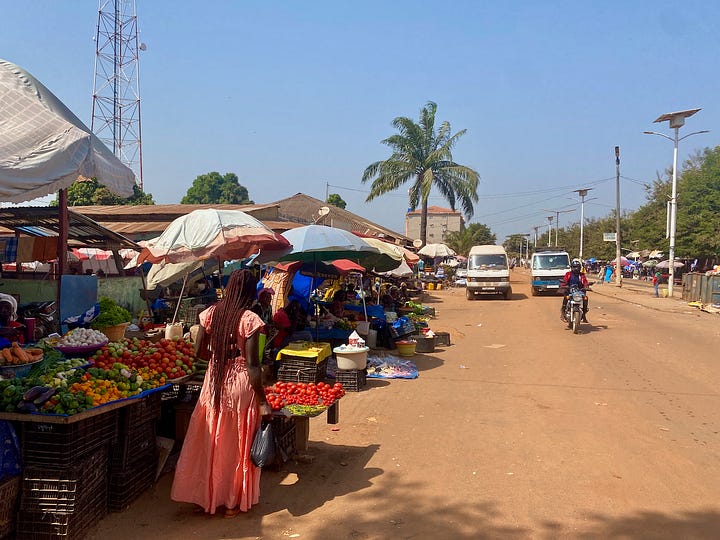
We tried to buy a savoury snack and ended up with little sweet beignets. For the first time in a while we had a language barrier, as most people speak a Portuguese-based Creole (as well as several indigenous languages) and our Portuguese is limited to greetings, numbers, and ‘just speak Spanish and hope some words sound similar’. On our second attempt we managed to find a delicious spicy empanada with an onion, carrot and orange sauce spooned inside. In this life, such things are counted as a major success.
We took some kayaks out on the estuary and had the most peaceful couple of hours I can remember for a while. A different type of silence; the kind that makes you feel you should whisper. Just us lightly splashing along and the occasional call of a bird taking flight.
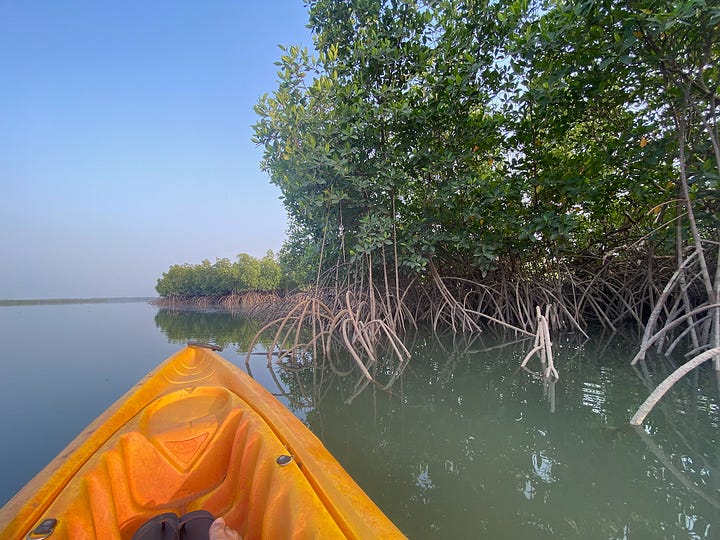
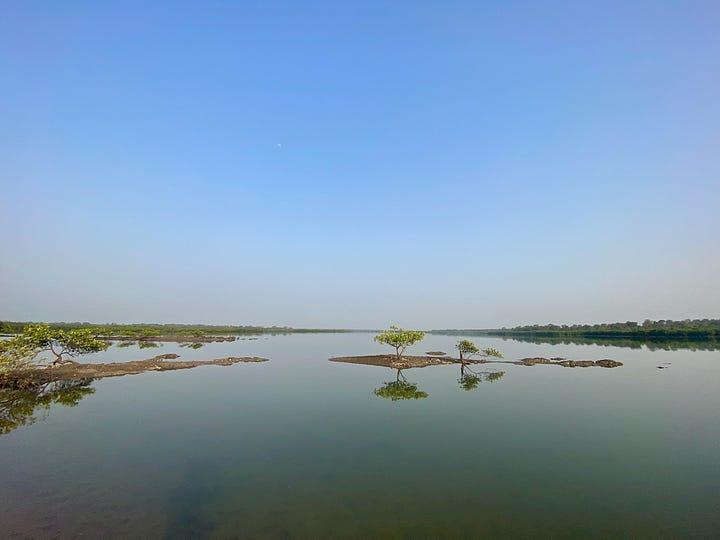
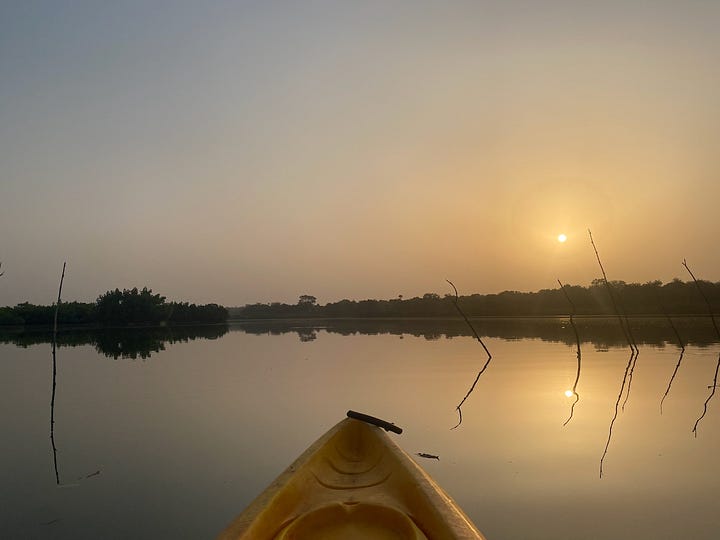
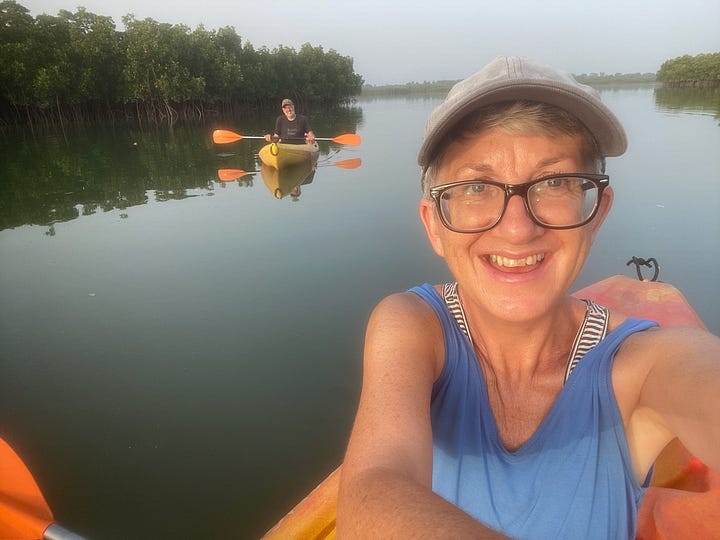
We had a slightly weird night out. A couple of beers in a shop, and then a tentative look into the ‘restaurant’ next door that had morphed into a full-blown (but still empty) nightclub since we’d spotted it during the day. We hesitated before seeing a group of locals heading in and followed them inside. In the darkness, and without a menu, we asked the staff what we could eat. We only picked up one familiar word, ‘churrasco’, and pounced on it.
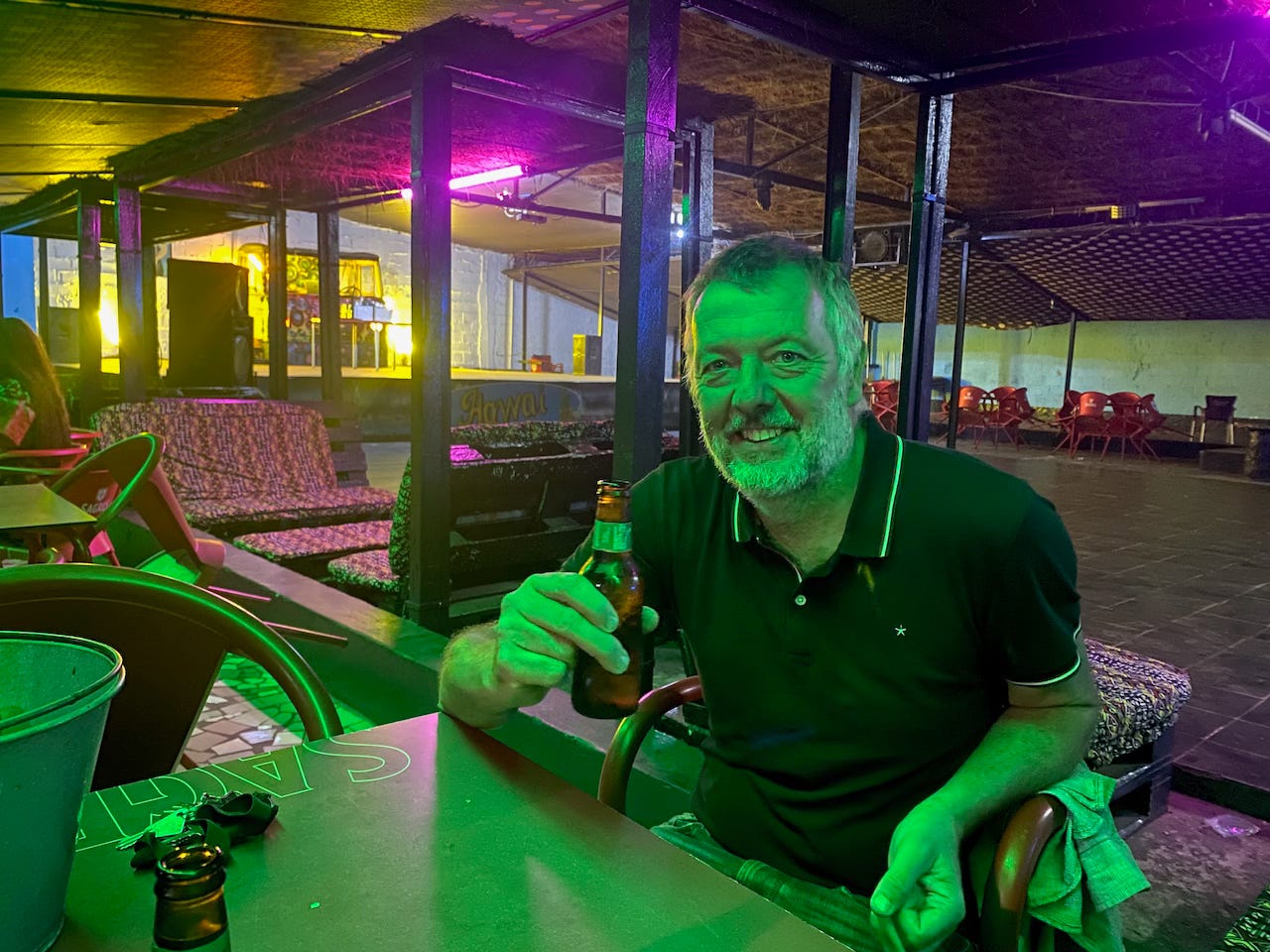
As we walked home only a handful of places had electricity and some people were crowded round a TV in a shop, watching football. We walked on, along the main road we’d driven earlier, a mix of broken tarmac and dirt that dipped and twisted like a rollercoaster. Meanwhile drug money is sloshing into this country and mostly staying in the hands of a few bastards and chancers. It’s hard to cover the complexity of such a topic in these posts. But it pisses us right off to see the lack of basics so many people still have to endure, while often being rendered powerless to change things.
We told the owner at our camping place that we were heading to Cacheu. “It’s the best stretch of road in the country!” she said. A whole 30km of good tarmac, whoopee.
Cacheu sits on the river with which it shares its name. To say the teeny port town is sleepy would be crediting it with too much energy. We rolled up to the port authority office at the water’s edge and asked if we could park outside it for the night – cue a confusing conversation, then eventually enthusiastic agreement. The boss came and introduced himself and kindly kept checking in on us. “Tudo bem?” (everything okay?)
We mentioned, in our fake Portuguese, that we were there to visit its slavery museum and fort. They went off to find the keyholder and he unlocked it for us. It was an excellent museum, setting out Cacheu’s role – under colonial rule – as a significant transit point for African slaves being transported to the Americas.
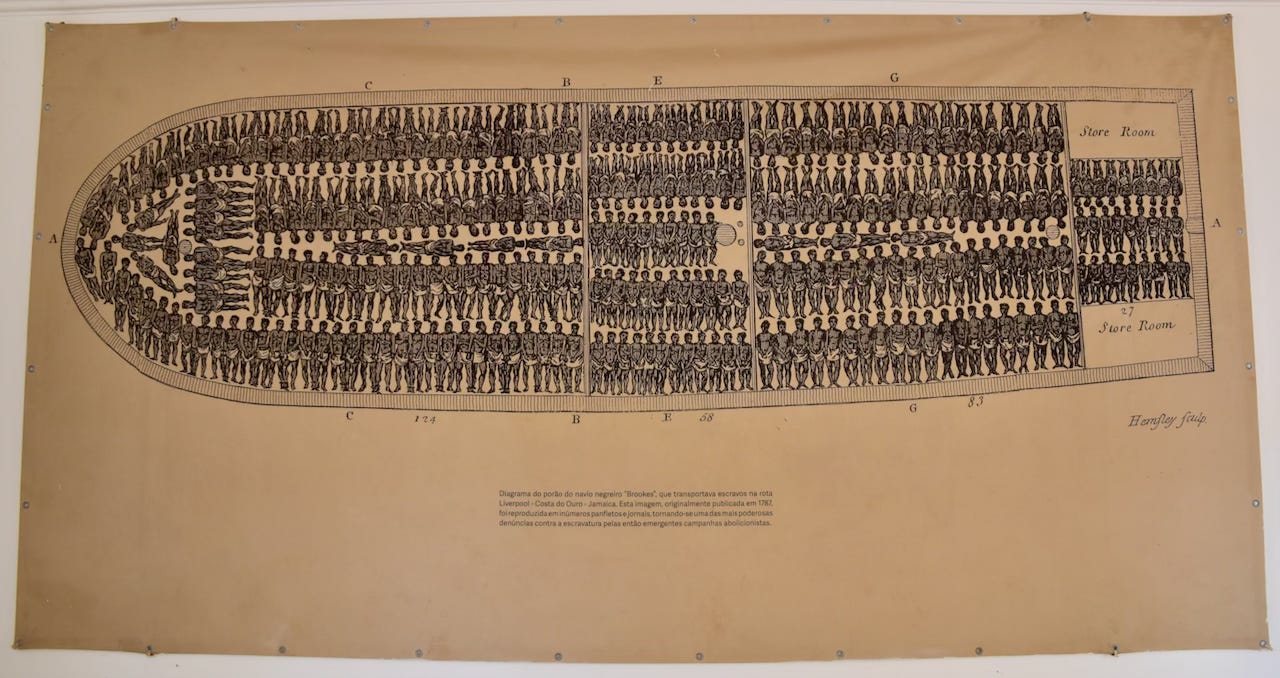
While fascinating, there are few things so depressing as such stark reminders of the incomprehensible scale, longevity, violence and inhumanity of the slave trade. And the impact that had, and is still having, on the dynamics of our entire world. What could I meaningfully add to these facts?
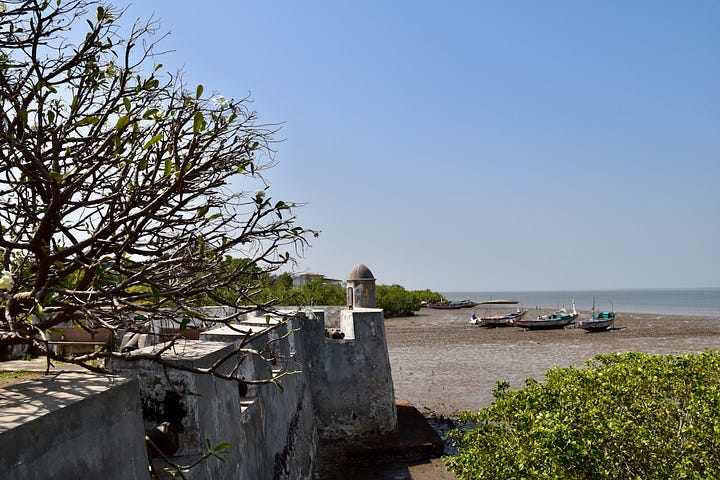
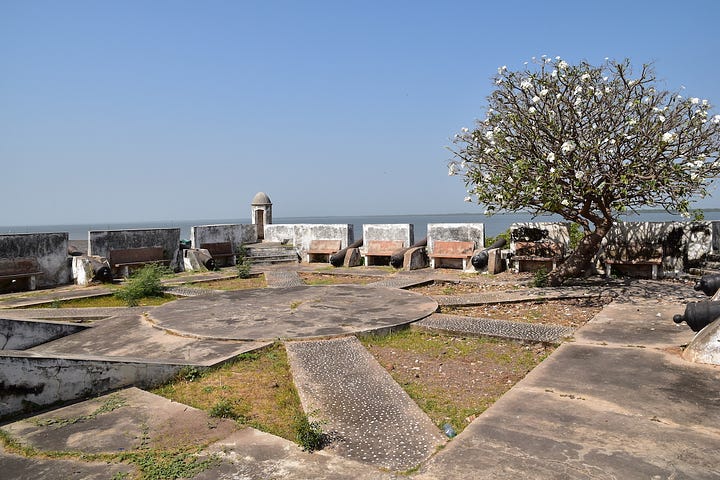
We had our own food but as we were the only tourists in town we thought it would be nice to support a local restaurant. No such place could be found. We asked at the hotel if they served food and when they said no, we said “is there anywhere to get a meal?”
“Canchungo”, they answered. Oh well.
It was another long bumpy ride to the capital, Bissau. We couldn’t get enough of the gorgeous old trees and cashew forests that lined the road. Cashew nuts are the country’s biggest export crop and most people in rural areas depend heavily on them.
As we entered the city, suddenly, a smooth dual carriageway! We don’t need pristine tarmac every day, but when you haven’t seen it for a while it’s a sight to behold.
We wandered around Bissau on a quiet Sunday. Colourful, crumbly old colonial buildings filled the streets of the old town. It was such a calm and sort-of pretty place to potter around. The ye olde-ness of it definitely had charm, but I felt a bit guilty about seeing ‘cool photos’ in dilapidation. Imagine what it could be with some investment? (China invests loads in Guinea Bissau, and many other African countries, but that’s a whole other long story). We saw some signs of that, but they were few and far between. The heat was ferocious. We escaped into a shady restaurant and reflected on the mental conflict we often feel when travelling in poor countries.
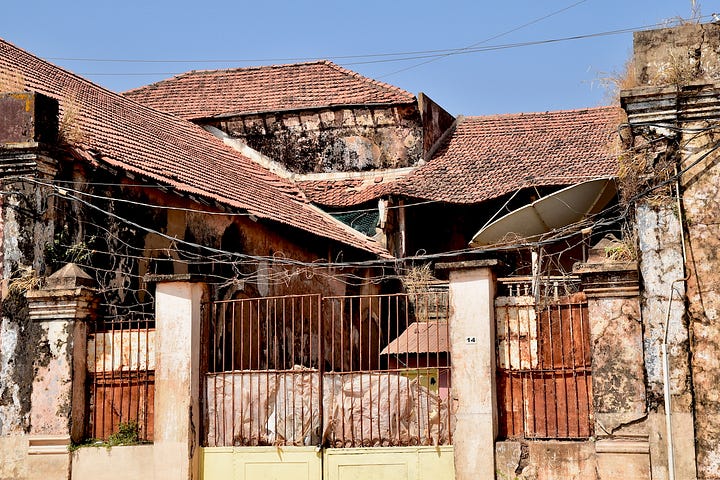
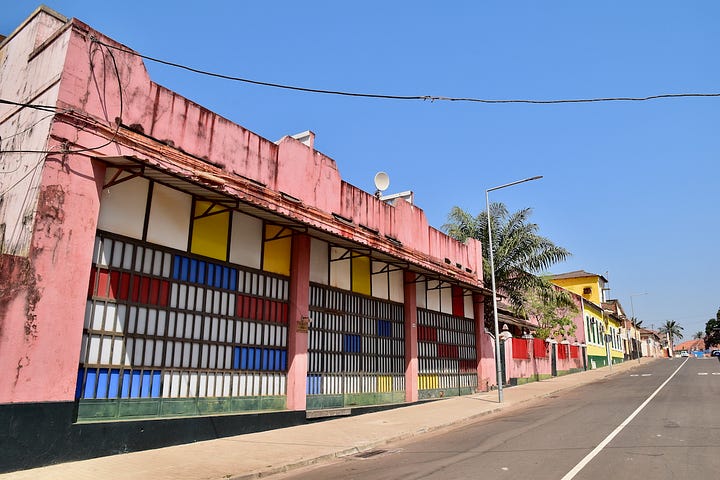
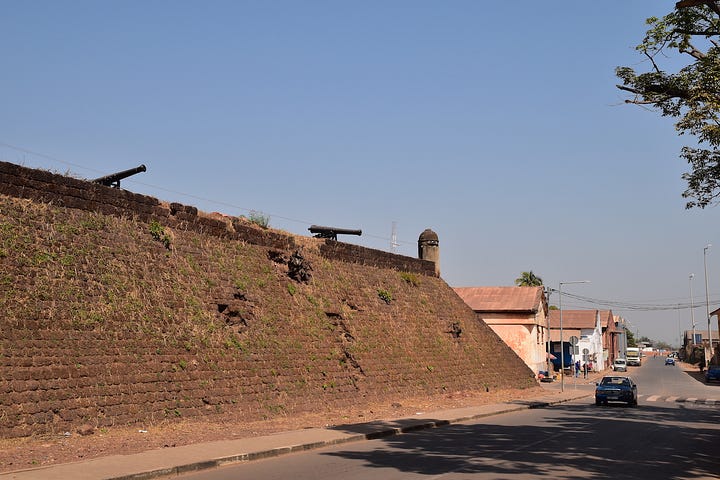
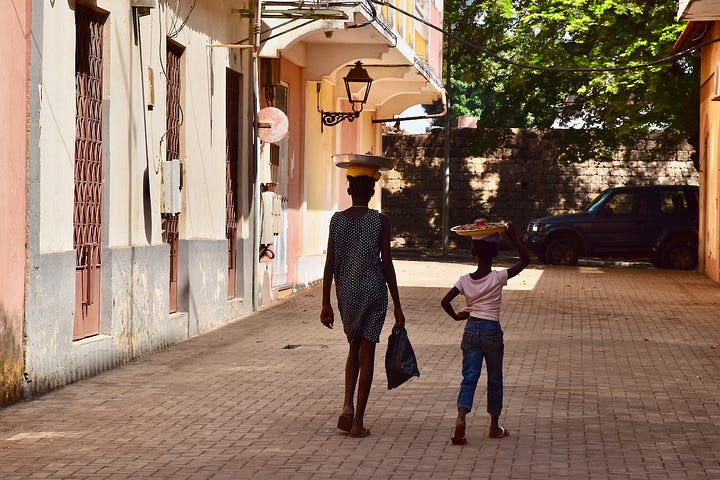
In Bissau we finally took the chance to get our temporarily welded stabiliser bar replaced with a new part. A steaming hot wild goose-chase ended in a very confusing conversation with a mechanic who then turned us away. I have a hate-hate relationship with the French language (my fault) but weirdly you miss it when it’s been replaced by Portuguese Creole and you’re trying to talk about ball joints. We took a Google punt on another place and when we pulled in and realised the mechanic was from (the Republic of) Guinea and therefore spoke le French, we could have kissed him.
While in Bissau we were also spending a lot of time deciding whether to, and how to, visit the country’s huge and almost completely unspoiled archipelago, the Bijagós islands. They’re so idyllic that if they were anywhere else in the world, ferries would be ploughing back and forth on a daily basis. But without mass tourism it’s not that simple here. The weekly ferry to the main island didn’t fit with what we wanted to do, and private chartered boats were prohibitively expensive. We’d been adamant from the off that the public pirogue wasn’t really an option, having read about safety issues around making the 4–5 hour journey in a ‘overcrowded handmade wooden canoe’.
But after a few days of asking around and talking in circles we finally came to the conclusion that we didn’t really have a choice. The pirogue it was.



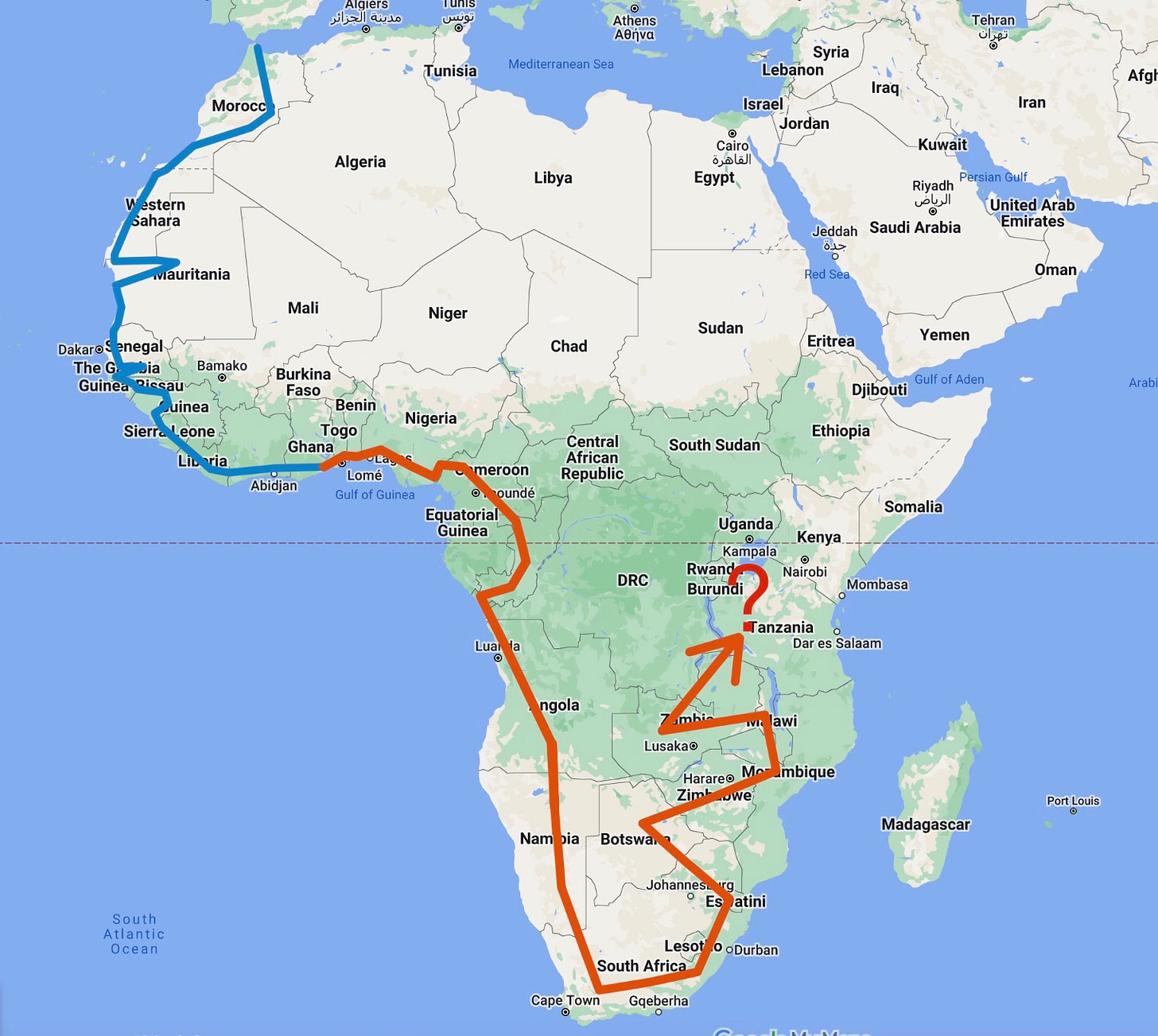

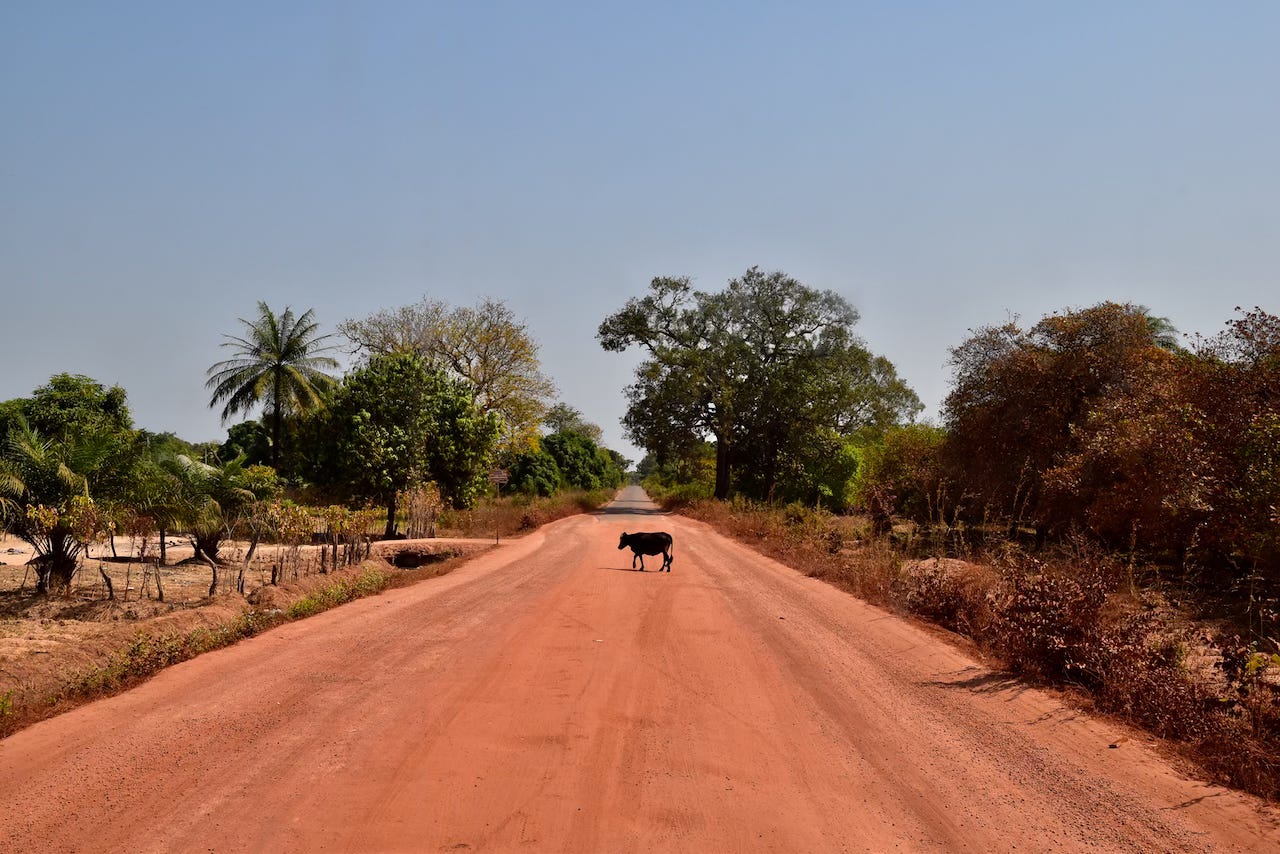
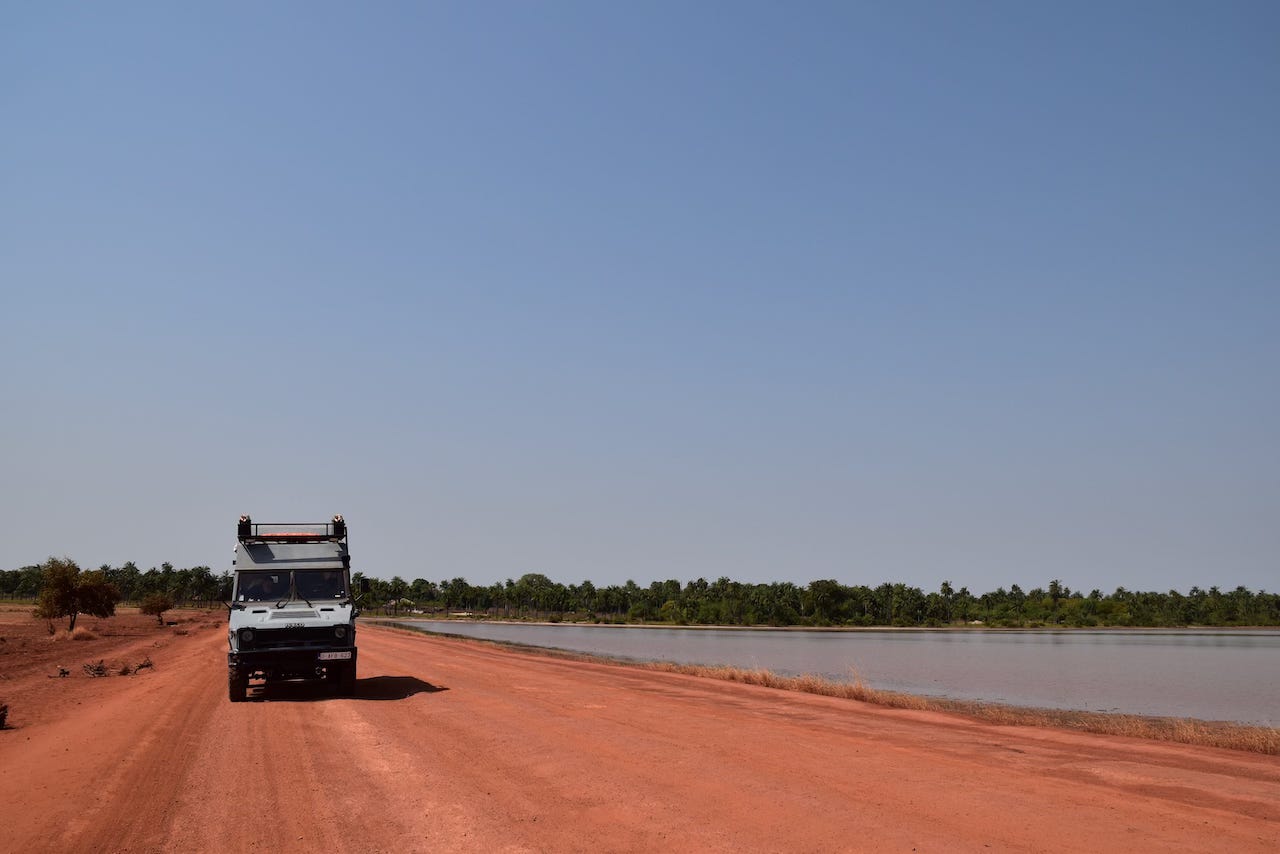





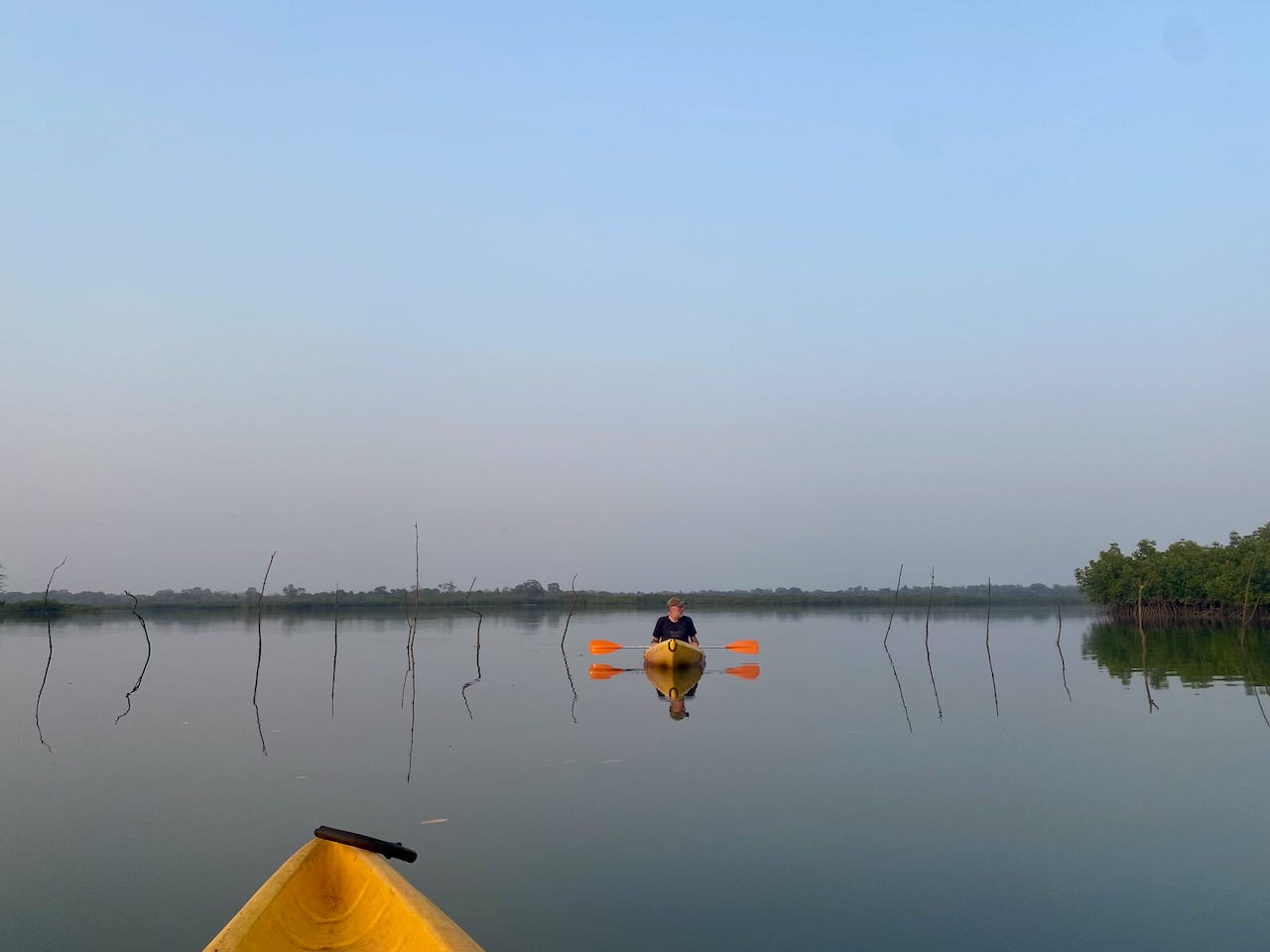

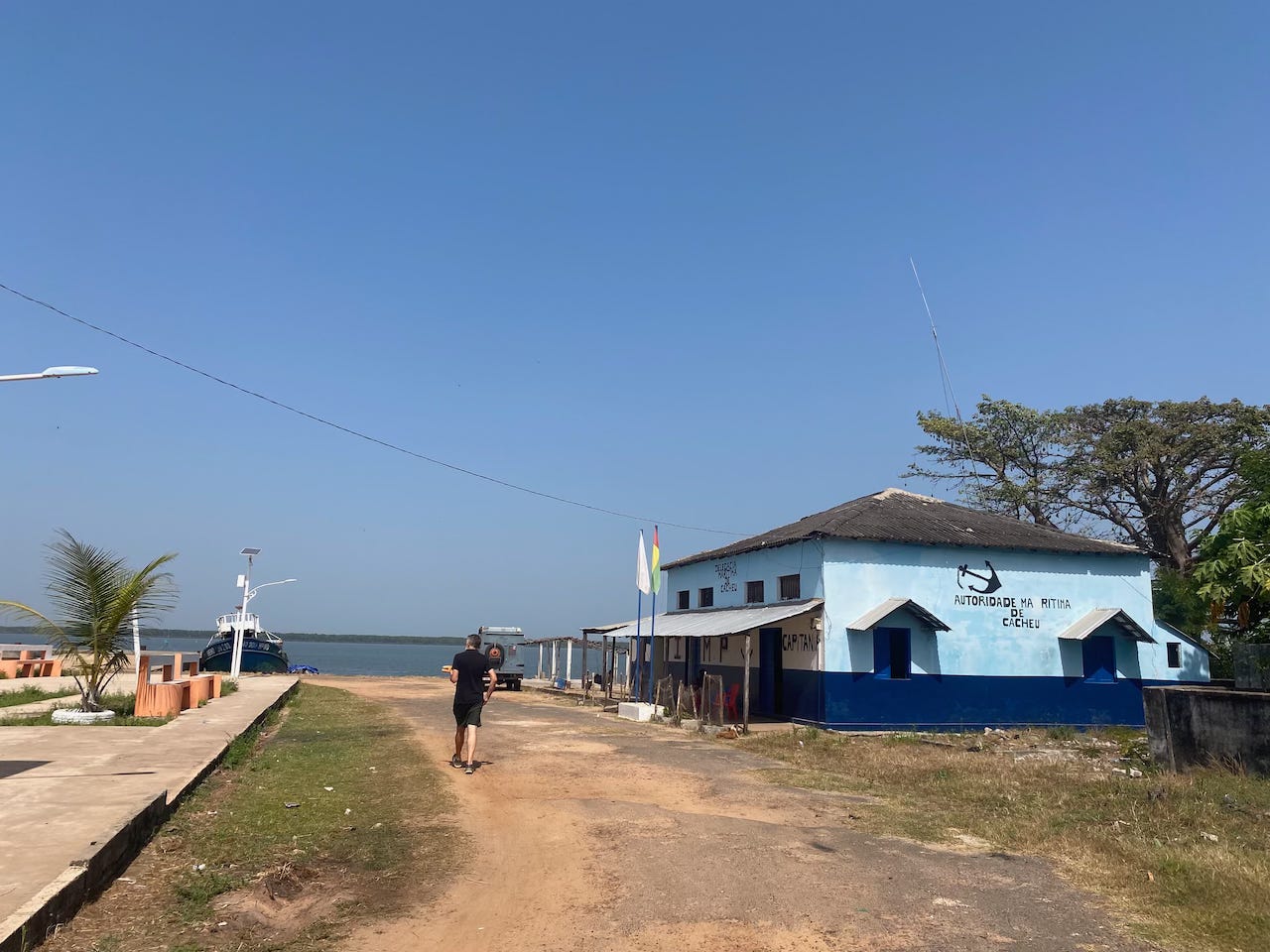

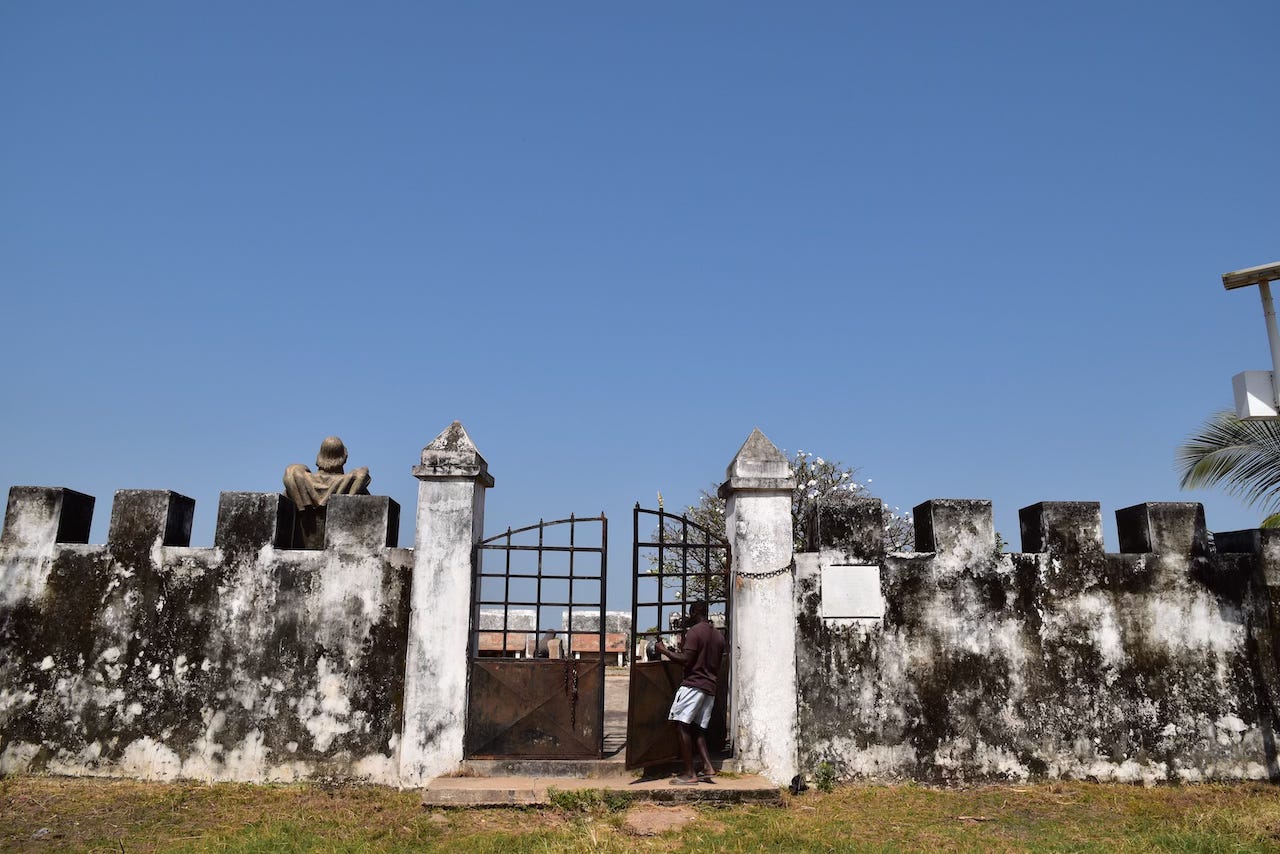






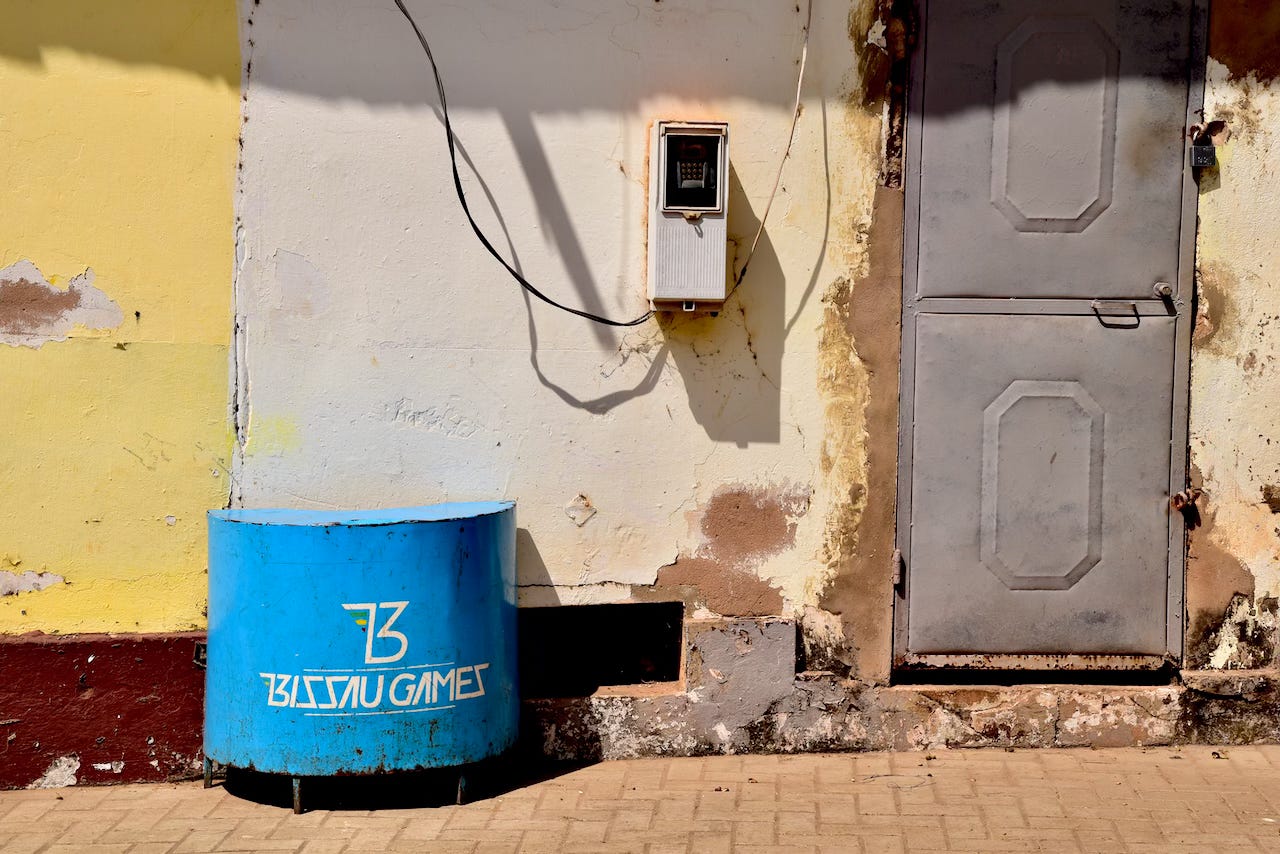
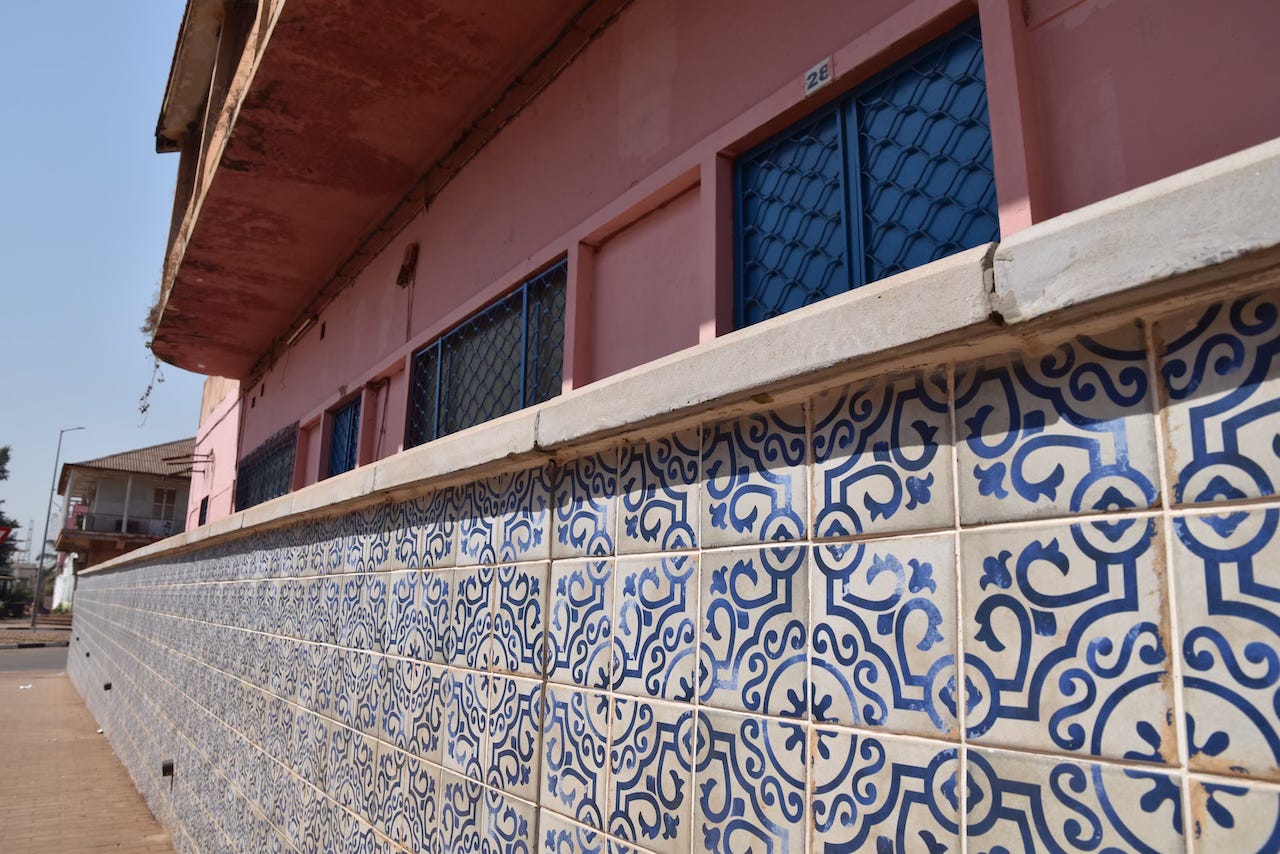


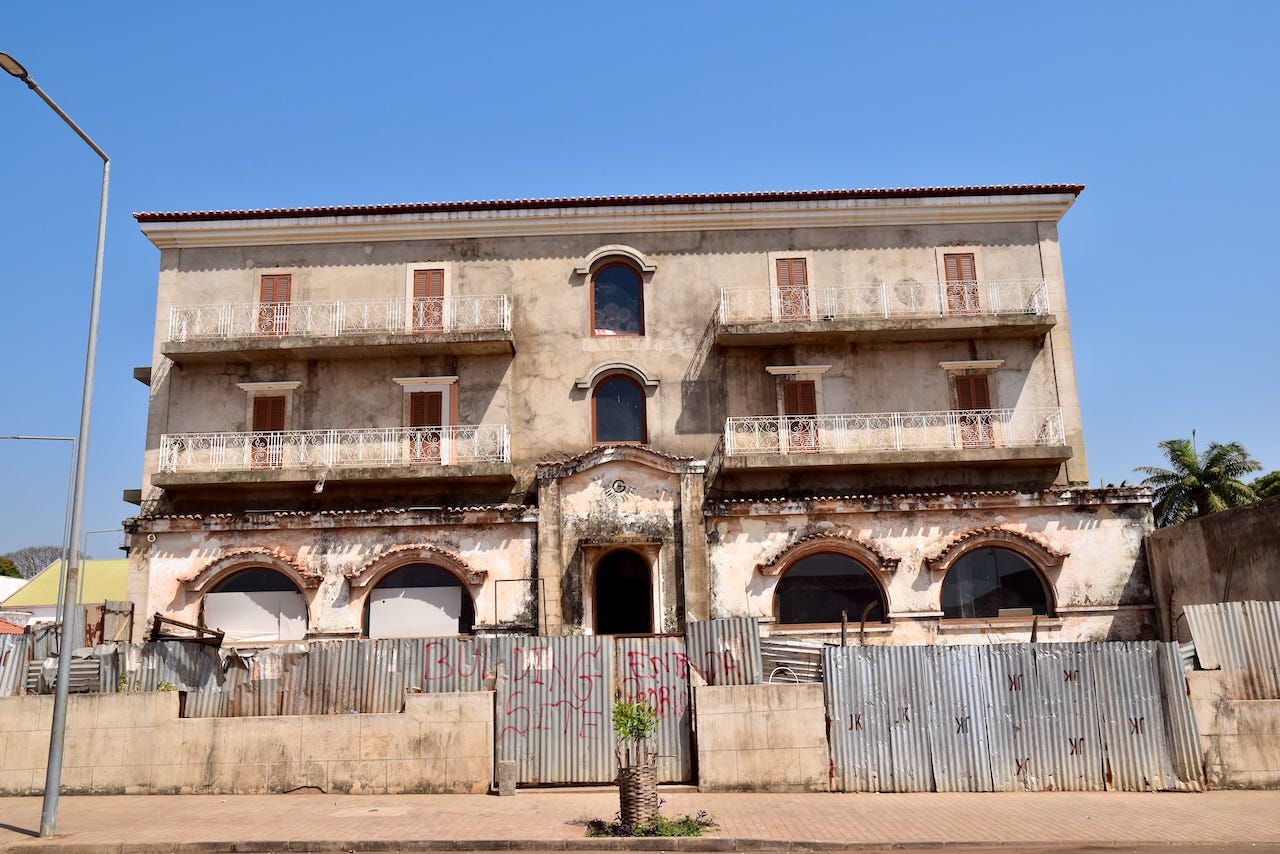
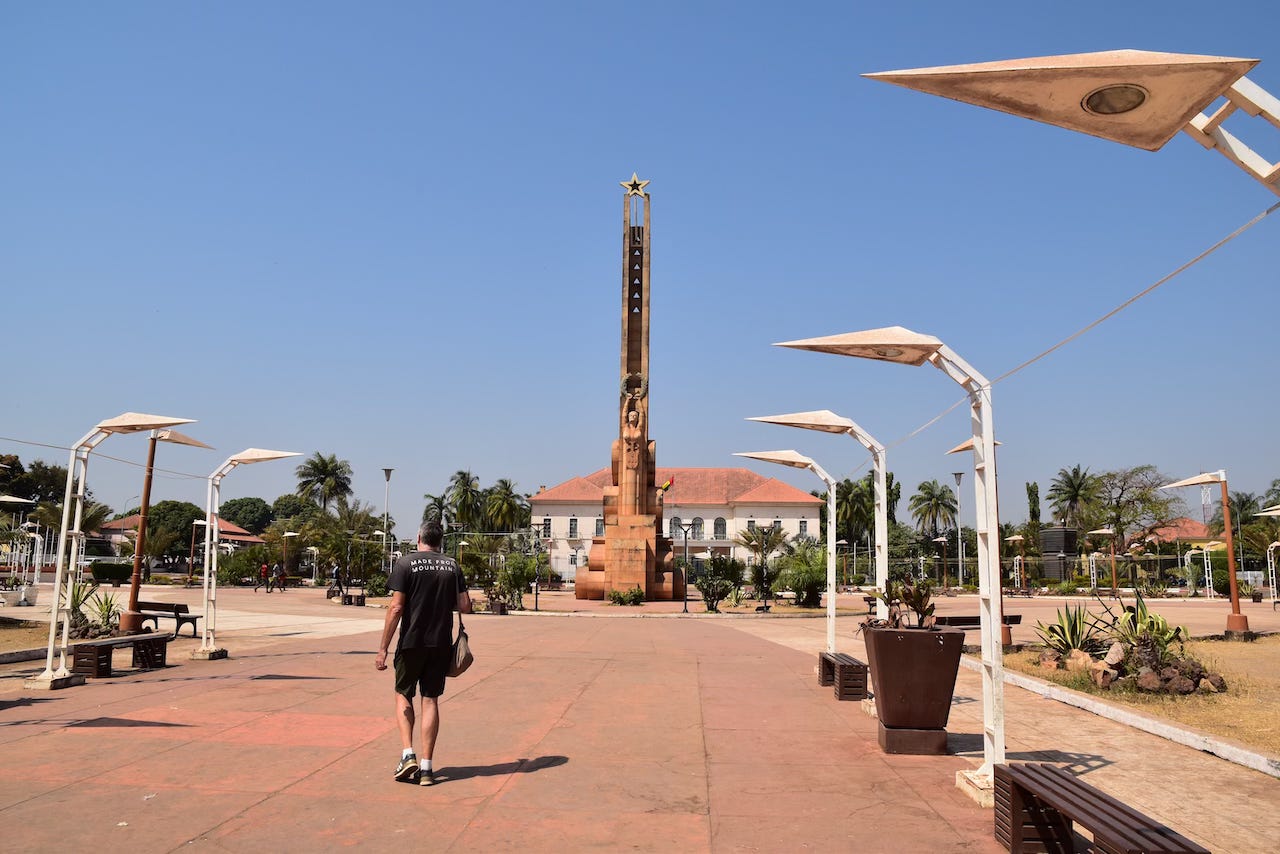
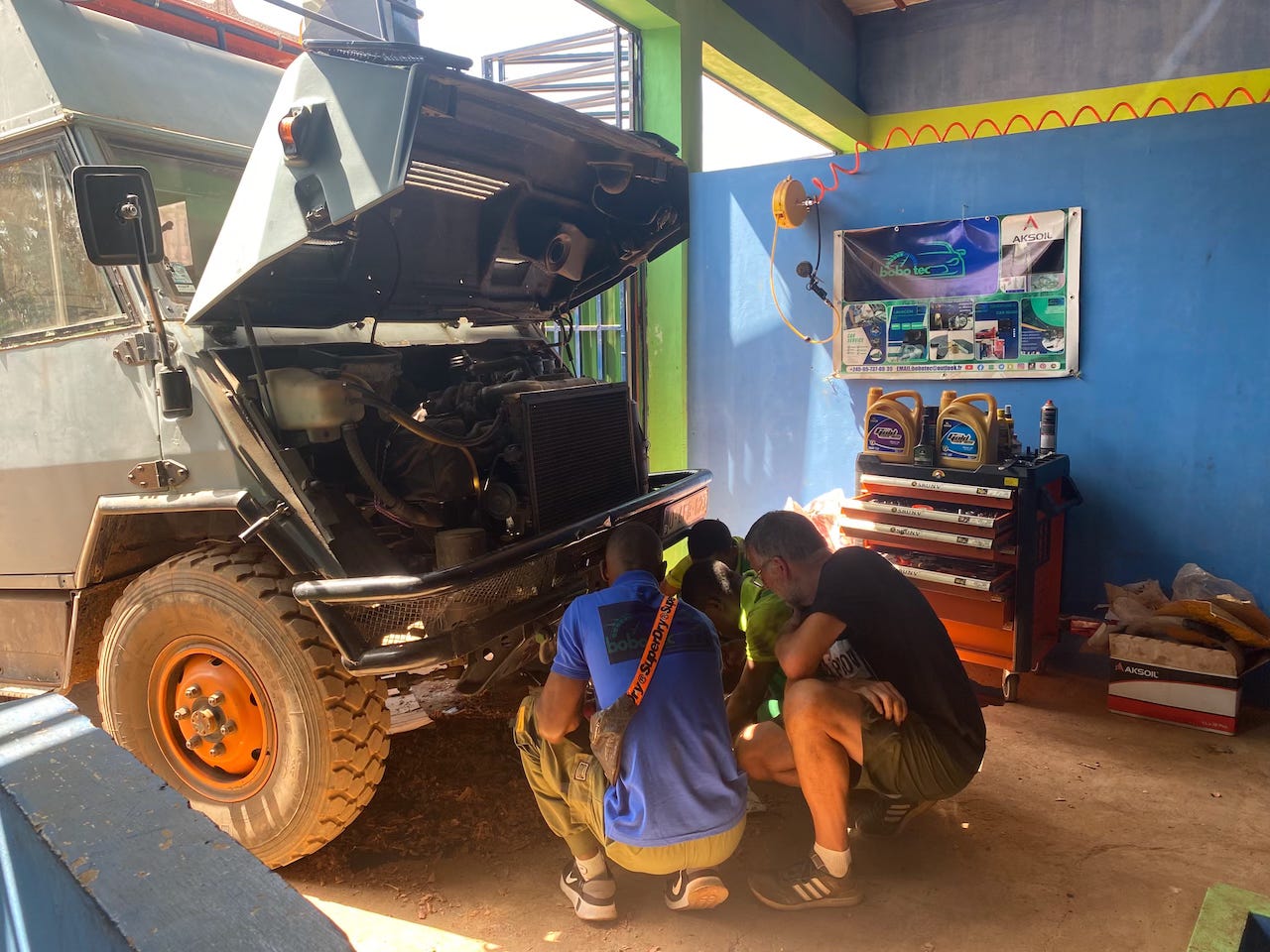
Will there be another post about the pirogue and the archipelago?
Wow, thanks so much for writing about this country and sharing your photos and videos. I'd never heard of Guinea Bissau before. Fascinating stuff. Looking forward to reading about your trip to the islands!